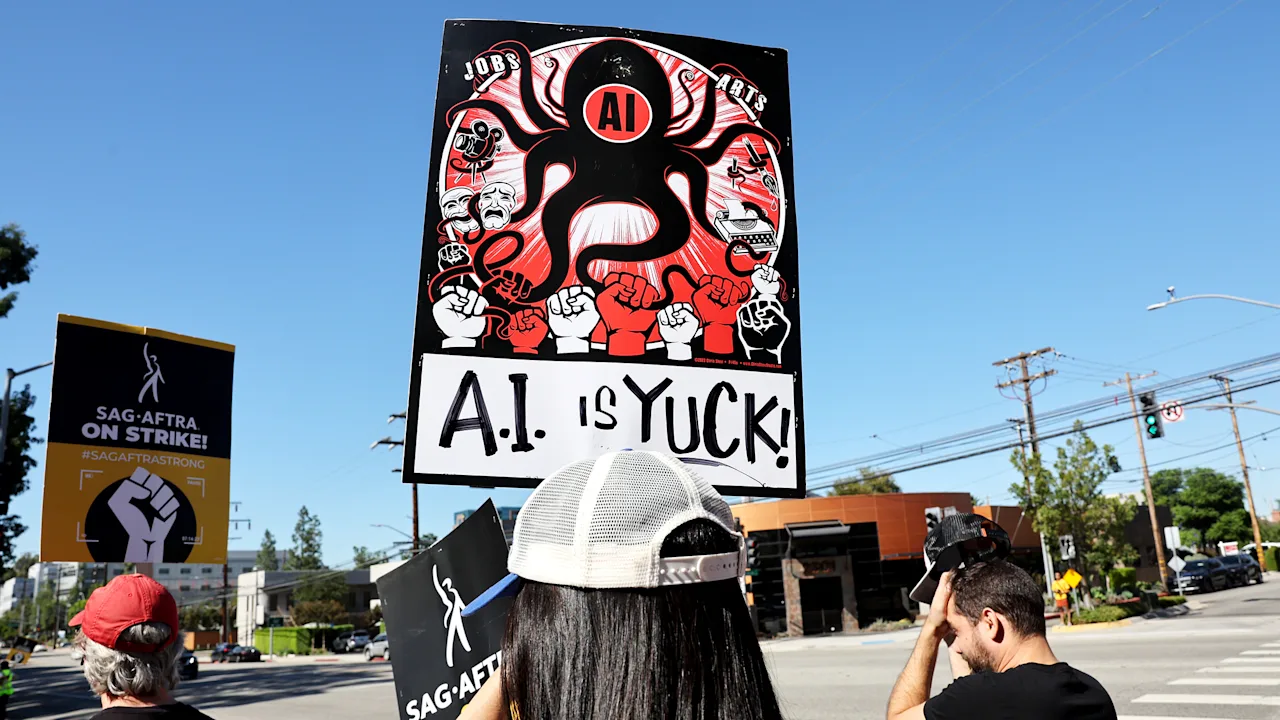Exploring AI Veganism: Understanding the Trends in AI Adoption
Author: David Joyner

Artificial intelligence (AI) has emerged as one of the most transformative technologies of our time, permeating various sectors including healthcare, finance, and entertainment. However, unlike other technological advancements, the response to AI has been marked by significant hesitancy. This phenomenon, often referred to as 'AI hesitancy' or 'AI reluctance,' poses a question about the future trajectory of AI adoption. As we explore this topic, one particularly insightful analogy emerges: 'AI veganism'. This concept likens those who resist or abstain from using AI to vegans, who avoid animal products for ethical, environmental, and health reasons.
The technology adoption life cycle traditionally suggests that innovators and early adopters are quick to embrace new technology, while skeptics and laggards come onboard much later. However, studies analyzing the prevailing attitudes toward AI suggest that the dynamics around AI adoption might differ significantly from past technologies. For instance, a substantial portion of individuals expressing skepticism toward AI are often in the demographic considered to be early adopters. This indicates that the reasons for hesitancy could be more profound and varied than simply a reluctance to engage with new technology.

AI Veganism: Understanding hesitancy towards AI adoption.
The notion of 'AI veganism' relates to those who consciously choose to avoid AI, similar to how vegans opt not to consume animal products. The motivations behind veganism—ethical sourcing, environmental concerns, and health implications—have striking parallels in the realm of AI hesitancy. For instance, many individuals are increasingly concerned about the ethical implications of AI, particularly regarding how data from content creators is utilized without consent. Such ethical considerations were notably highlighted during the strikes by the Writers Guild of America, where creators demanded fair compensation for their work used to train AI models.
Next, environmental concerns are a significant motivator for many who adopt a vegan lifestyle, as intensive animal agriculture is notorious for its detrimental effects on the planet, including deforestation and high carbon emissions. Similarly, the environmental impact of AI cannot be overlooked; the energy consumption associated with AI technologies is rising alarmingly. Reports indicate that even small improvements in AI efficiency inevitably lead to increased resource consumption due to a rebound effect. As users become more aware of the substantial electricity and water demands of AI, it influences their willingness to engage with these technologies.
Moreover, health concerns serve as another critical aspect of the vegan narrative. Individuals often choose a vegan lifestyle out of fear regarding the health effects associated with consuming animal products. In the context of AI, research suggests that heavy reliance on generative AI could impair critical thinking skills among users. A survey from the University of Cambridge revealed that students worried about the potential laziness AI might induce, drawing a direct correlation to the health-related apprehensions that underpin vegan choices.
As society grapples with these ethical, environmental, and health-related issues, the concept of 'AI veganism' raises intriguing possibilities about how companies could respond. Just as restaurants have blossomed to cater to vegan diets, we may see businesses capitalizing on the absence of AI as a distinguishing factor in their offerings. Some brands like DuckDuckGo and Mozilla have already gained traction by highlighting user privacy—a feature that appeals to those wary of mainstream technologies driven by AI. Should a significant segment of the population continue to refrain from using AI, this niche market could grow, potentially leading to more innovations that prioritize ethical practices in technology.
In conclusion, AI veganism presents a compelling framework to analyze the hesitations surrounding AI adoption. While traditional technology adoption models suggest that reluctance will diminish over time, the unique ethical, environmental, and health concerns associated with AI may sustain a dedicated cohort of abstainers. As we move forward, understanding these dynamics will be crucial for businesses and policymakers aiming to navigate the complex landscape of AI integration.
As for the future of AI adoption, it remains uncertain. Will we see a growing market for AI-friendly products that address these ethical concerns, or will the skeptics' arguments lead to a substantial delay in broad adoption? Time will tell if AI veganism solidifies its place in the tech landscape, but it undoubtedly highlights the need for a deeper dialogue surrounding the ethical use of technology across all sectors.